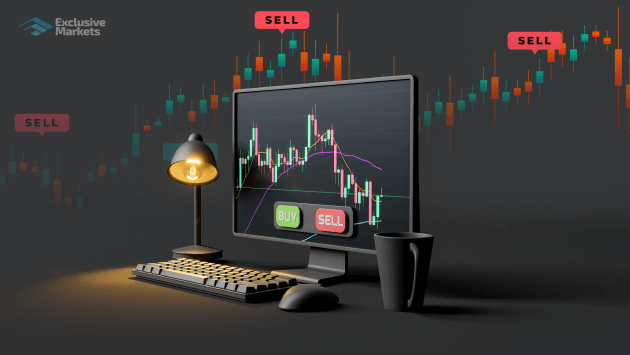
Forex trading is an exciting and potentially lucrative venture. However, it comes with its share of challenges and risks. To help you embark on your trading journey, we present some valuable forex trading tips https://exglobal.pk/ that can enhance your chances of success. Whether you are a beginner or an experienced trader, these insights can guide you in making informed decisions.
1. Understand the Basics of Forex Market
Before diving into trading, it’s crucial to understand the fundamental concepts of the forex market. Familiarize yourself with terms such as currency pairs, pips, leverage, and lot sizes. Understanding how the forex market operates will help you make better trading decisions.
2. Develop a Trading Plan
A well-defined trading plan is essential for success in forex trading. Your plan should include your trading goals, risk tolerance, and strategies for entering and exiting trades. Having a clear plan helps you remain disciplined and avoid emotional decision-making, which can lead to losses.
3. Employ Risk Management Techniques
Risk management is a critical aspect of forex trading. Always use stop-loss orders to protect your capital from significant losses. Determine the amount of capital you are willing to risk on each trade and stick to that limit. A general rule is to risk no more than 1-2% of your trading capital on a single trade.
4. Keep Learning and Stay Updated
The forex market is dynamic, and continuous education is essential. Stay updated with current economic news, market trends, and geopolitical events that may affect currency prices. Follow reputable forex news websites, and consider enrolling in courses or webinars to enhance your skills.
5. Analyze the Market
There are two primary types of analysis in forex trading: fundamental analysis and technical analysis. Fundamental analysis involves evaluating economic indicators, news, and events that impact currency values. Technical analysis, on the other hand, involves studying price charts and using indicators to forecast future price movements. Combining both methods can provide you with a well-rounded view of the market.

6. Practice with a Demo Account
Before committing real money, consider practicing with a demo account. Most forex brokers offer demo accounts where you can trade with virtual money. This is a great way to test your strategies, familiarize yourself with the trading platform, and gain confidence without any financial risk.
7. Start Small and Scale Up
When you start trading with real money, it’s advisable to begin with a small amount. This will allow you to experience live trading conditions without risking significant capital. As you gain experience and confidence, you can gradually increase the size of your trades.
8. Control Your Emotions
Trading can be an emotional experience, especially when it comes to losses and profits. It’s vital to remain calm and composed, avoiding impulsive decisions driven by fear or greed. Stick to your trading plan and maintain discipline, regardless of the outcome of individual trades.
9. Utilize Technical Tools
Several technical tools can aid in your trading decisions. Platforms often offer comprehensive charting capabilities, indicators, and automated trading tools. Learn how to use these effectively to analyze price movements and enhance your trading strategies.
10. Keep a Trading Journal
Maintaining a trading journal can be incredibly beneficial for your growth as a trader. Document your trades, including entries, exits, reasons for the trade, and outcomes. Analyzing your past trades can help identify patterns and improve your strategies over time.
11. Be Aware of Market Hours

The forex market operates 24 hours a day, but not all hours are equally active. Understanding the peak trading times for different currency pairs can be advantageous. Look for hours with high trading volumes, often around major market openings such as London or New York, to execute your trades.
12. Avoid Overtrading
It’s essential to trade only when you have clear signals and opportunities. Overtrading can lead to significant losses and increased transaction costs. Be selective about your trades and only enter the market when the conditions align with your trading plan.
13. Stay Disciplined and Patient
Successful forex trading requires patience and discipline. There will be times when the market doesn’t provide favorable opportunities, and that’s okay. Wait for the right setup according to your analysis and trading strategy. Rushing into trades often leads to mistakes.
14. Leverage Wisely
Leverage allows traders to control larger positions with a smaller amount of capital. While it can increase potential profits, it also magnifies losses. Use leverage cautiously and understand the risks involved. Ideally, aim to use lower leverage to manage risk effectively.
15. Consider Currency Correlation
Understanding currency correlation can help you make informed trading decisions. Some currency pairs tend to move in tandem (positive correlation), while others move inversely (negative correlation). Familiarize yourself with these relationships to optimize your trading portfolio.
Conclusion
Forex trading can be a rewarding pursuit when approached with the right mindset and strategies. By understanding the market, developing a robust trading plan, and practicing sound risk management, you can enhance your chances of success. Continuous learning and a disciplined approach will contribute to your growth as a trader. Remember that every trader experiences ups and downs; the key is to remain focused on your long-term goals and keep refining your skills.
With these forex trading tips in mind, you are better equipped to navigate the complexities of the forex market. Stay patient, disciplined, and always be open to learning, and you can build a successful trading career.

